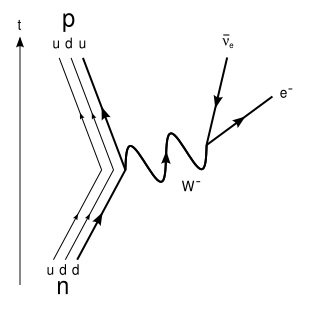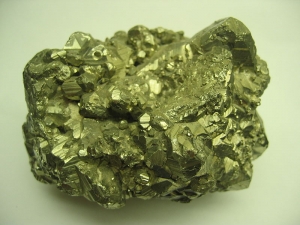Tuesday, April 29. 2008
See update 8/2/08/ Open Access: "Gratis" and "Libre"
 Re-posted from Peter Suber's Open Access News. Re-posted from Peter Suber's Open Access News. (This is to register 100% agreement on this definition of "Strong" and "Weak" OA): Strong and Weak OA
The term "open access" is now widely used in at least two senses. For some, "OA" literature is digital, online, and free of charge. It removes price barriers but not permission barriers. For others, "OA" literature is digital, online, free of charge, and free of unnecessary copyright and licensing restrictions. It removes both price barriers and permission barriers. It allows reuse rights which exceed fair use.
There are two good reasons why our central term became ambiguous. Most of our success stories deliver OA in the first sense, while the major public statements from Budapest, Bethesda, and Berlin (together, the BBB definition of OA) describe OA in the second sense.
As you know, Stevan Harnad and I have differed about which sense of the term to prefer --he favoring the first and I the second. What you may not know is that he and I agree on nearly all questions of substance and strategy, and that these differences were mostly about the label. While it may seem that we were at an impasse about the label, we have in fact agreed on a solution which may please everyone. At least it pleases us.
We have agreed to use the term "weak OA" for the removal of price barriers alone and "strong OA" for the removal of both price and permission barriers. To me, the new terms are a distinct improvement upon the previous state of ambiguity because they label one of those species weak and the other strong. To Stevan, the new terms are an improvement because they make clear that weak OA is still a kind of OA.
On this new terminology, the BBB definition describes one kind of strong OA. A typical funder or university mandate provides weak OA. Many OA journals provide strong OA, but many others provide weak OA.
Stevan and I agree that weak OA is a necessary but not sufficient condition of strong OA. We agree that weak OA is often attainable in circumstances when strong OA is not attainable. We agree that weak OA should not be delayed until we can achieve strong OA. We agree that strong OA is a desirable goal above and beyond weak OA. We agree that the desirability of strong OA is a reason to keep working after attaining weak OA, but not a reason to disparage the difficulties or the significance of weak OA. We agree that the BBB definition of OA does not need to be revised.
We agree that there is more than one kind of permission barrier to remove, and therefore that there is more than one kind or degree of strong OA.
We agree that the green/gold distinction refers to venues (repositories and journals), not rights. Green OA can be strong or weak, but is usually weak. Gold OA can be strong or weak, but is also usually weak.
I've often wanted short, clear terms for what I'm now going to call weak and strong OA. But I also wanted a third term. In my blog and newsletter I often need a term which means "weak or strong OA, we don't know which yet". For example, a press release may announce a new journal, digital library, or database, without making clear what kind of reuse rights it allows. Or a new journal will launch which makes its articles are freely available but says nothing at all about its access policy. I will simply call them "OA". I'll specify that they are strong or weak OA only after I learn enough to do so.
Stevan and I agree in regretting the current, confusing ambiguity of the term, and we agree that the weak/strong terminology turns this ambiguity to advantage by attaching labels to the two most common uses in circulation. I find the new terms an especially promising solution because they dispel confusion without requiring us to buck the tide of usage, which would be futile, or revise the BBB definition, which would be undesirable.
Postscript. Stevan and I were going to write up separate accounts of this agreement and blog them simultaneously. But when he saw my draft, he decided to blog it without writing his own. That's agreement!
Posted in Open Access News by Peter Suber at 4/29/2008 03:01:00 PM.
Thursday, April 10. 2008

[Update: See new definition of "Weak" and "Strong" OA, 29/4/2008]
SUMMARY: (a) On the current BBB definitions, Green OA ("price-freedom") is not OA, hence Green OA mandates are not OA mandates. This is self-contradictory, and the definition needs to be updated.
(b) I am of course in no way opposed to getting more than OA ("price&permission-freedom") ("p&p"): I am opposed to getting less than OA because of (prematurely) insisting on more than OA: to delaying or diminishing the good for the better.
(c) I believe that consensus on adopting and applying Green OA self-archiving mandates (true and effective mandates, with no opt-out option) is within immediate reach globally and has already demonstrated (locally) that it will generate full Green OA.
(d) I also believe that universal Green OA will in turn generate p&p OA as a natural matter of course.
(e) I also believe that reaching consensus on adopting and complying with p&p OA mandates from the outset is highly unlikely, and that holding out for that, instead of immediately agreeing on mandating Green OA, will only delay reaching universal OA. This would amount to getting less than OA because of (prematurely) insisting on more than OA.
(f) The same is true about (incoherently) arguing (on the basis of BBB) that Green OA is not really OA, hence Green OA mandates are not really OA mandates.
(g) Peter Suber has understood, fully, that our tactical differences are only about priorities: about means, not ends. (Not everyone else has understood this.)
(i) There is an interim pragmatic trade-off among embargoes, opt-out options and the payment of extra publisher fees that is adequately resolved for the immediate primary needs of research and researchers by the immediate deposit mandate plus the "email eprint request" Button, which provide interim "almost-OA" during any embargo. Universal ID/OA mandates will hasten the inevitable natural death of access embargoes and usage restrictions.
Klaus Graf wrote: "How many people must die because an OA guru says 'There is a need to update BBB' and denies the need of re-use?"
Umm, a bit shrill! But here's my (6-step) answer: (1) We have neither price-freedom nor permission-freedom today. (So if people are dying because of that, they're dying.)
(2) I am as sure as I am of anything (short of Cartesian certainty) that universal price-freedom (Green OA) not only fulfills most of the immediate needs of researchers, but that it is also the fastest and surest way of eventually achieving permission-freedom too (let's call that "Gold OA," for simplicity -- it's not, but it'll do).
(3) Now price-freedom can be achieved by self-archiving, and self-archiving can be (and is being) mandated.
(4) Insisting now on wrapping permission-freedom (copyright-retention) into the mandate makes it much more difficult and less likely that consensus will be reached on adopting a mandate at all -- and if adopted, this stronger p&p mandate seems to require an opt-out option as a compromise (as in Harvard's p&p mandate), which means it is no longer a mandate at all, hence compliance is no longer assured. (This can be fixed by restricting the opt-out option to the permission clause, and adding an immediate deposit clause with no opt-out.)
(5) But (as Peter Suber has very fully understood) I have no reservations at all about stronger mandates (Green price-freedom plus Gold permission-freedom mandates) if they can be successfully agreed upon, adopted, implemented and fulfilled. More is always better than less if it can indeed be had; more is only an obstacle if it stands in the way of the less that is already within reach.
(6) Harvard's p&p copyright-retention mandate, with an opt-out, is not a mandate. If it nevertheless proves, in 3 years, to deliver nearly 100% p&p OA, then it will be a success (and I will have been proved wrong). If not, then yet another 3 years will have been lost by needlessly over-reaching -- because we already have evidence that weaker Green deposit (price-freedom) mandates, without opt-out, deliver nearly 100% (Green) OA within 3 years. (And if Harvard's p&p mandate with opt-out is widely imitated in the meanwhile, instead of just a price-freedom mandate without opt-out, without even knowing whether p&p with opt-out is destined to succeed or fail, then a lot more years of OA will be needlessly lost.) So "How many people must die"? Klaus thinks it will be fewer if we reach further, trying for both price-freedom and permission-freedom in the same swoop (at the risk of getting neither). I think it will be fewer if we first grasp what is already within our reach, because that is not only sure to give us most of what we want and need immediately (price-freedom), but it is also the most likely way to get us the rest (permission-freedom) thereafter too.
(By the way, if we don't update BBB, then Green OA is not OA, and Green OA mandates are not providing what they say and think they are providing, but something else. Nor have I been talking about OA for a decade and a half now, but about something else. "If this be error and upon me proved, I never writ, nor no man ever wooed...") "Kripke (1980) gives a good example of how "gold" might be baptized on the shiny yellow metal in question, used for trade, decoration and discourse, and then we might discover "fool's gold," which would make all the sensory features we had used until then inadequate, forcing us to find new ones. [Kripke] points out that it is even possible in principle for "gold" to have been inadvertently baptized on "fool's gold"! Of interest here are not the ontological aspects of this possibility, but the epistemic ones: We could bootstrap successfully to real gold even if every prior case had been fool's gold. "Gold" would still be the right word for what we had been trying to pick out all along, and its original provisional features would still have provided a close enough approximation to ground it, even if later information were to pull the ground out from under it, so to speak." [Harnad 1990]
Amen.
Stevan Harnad
American Scientist Open Access Forum
|



